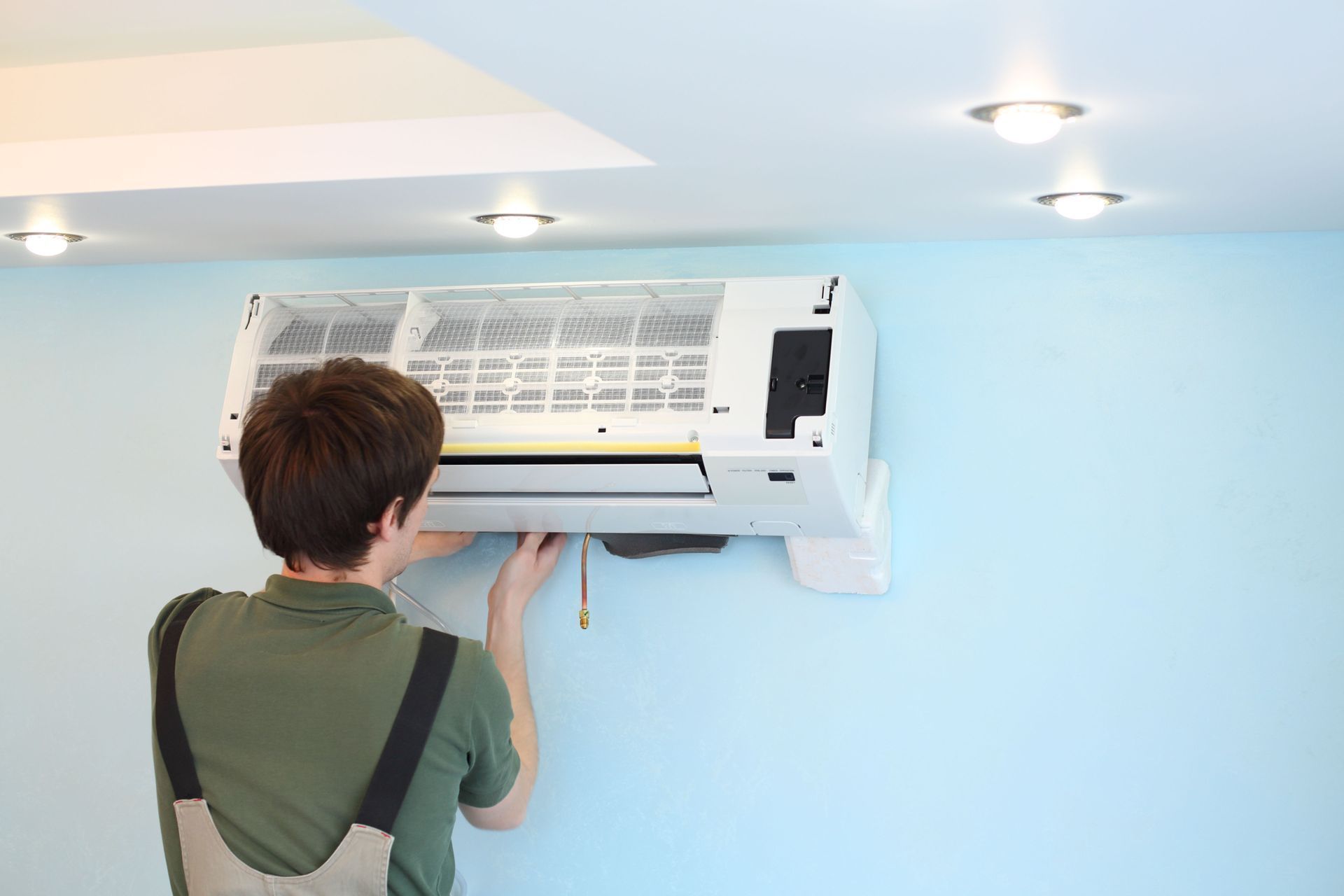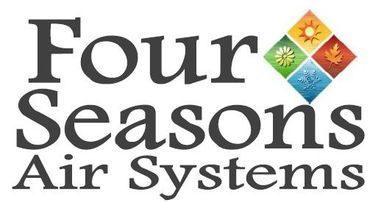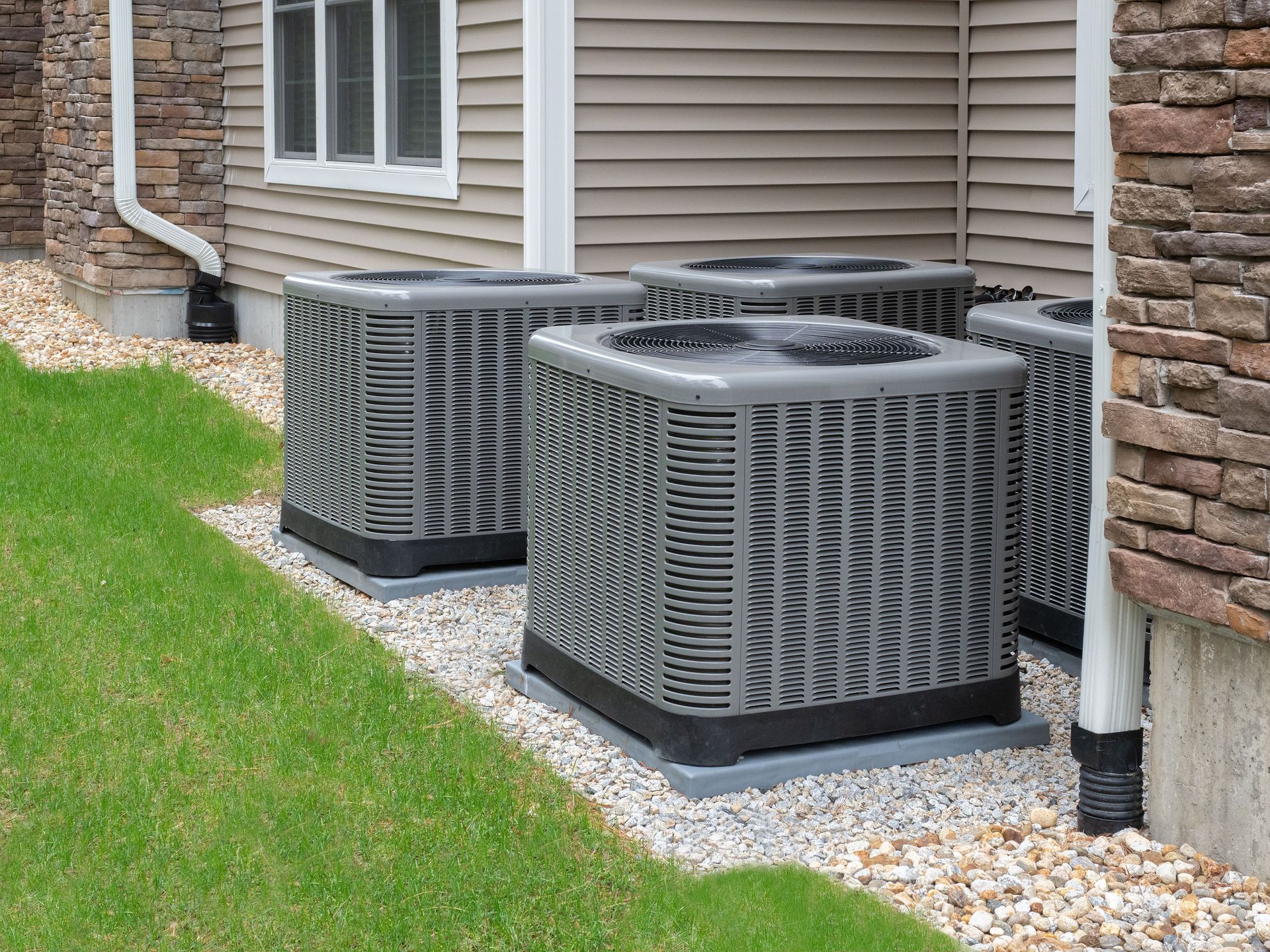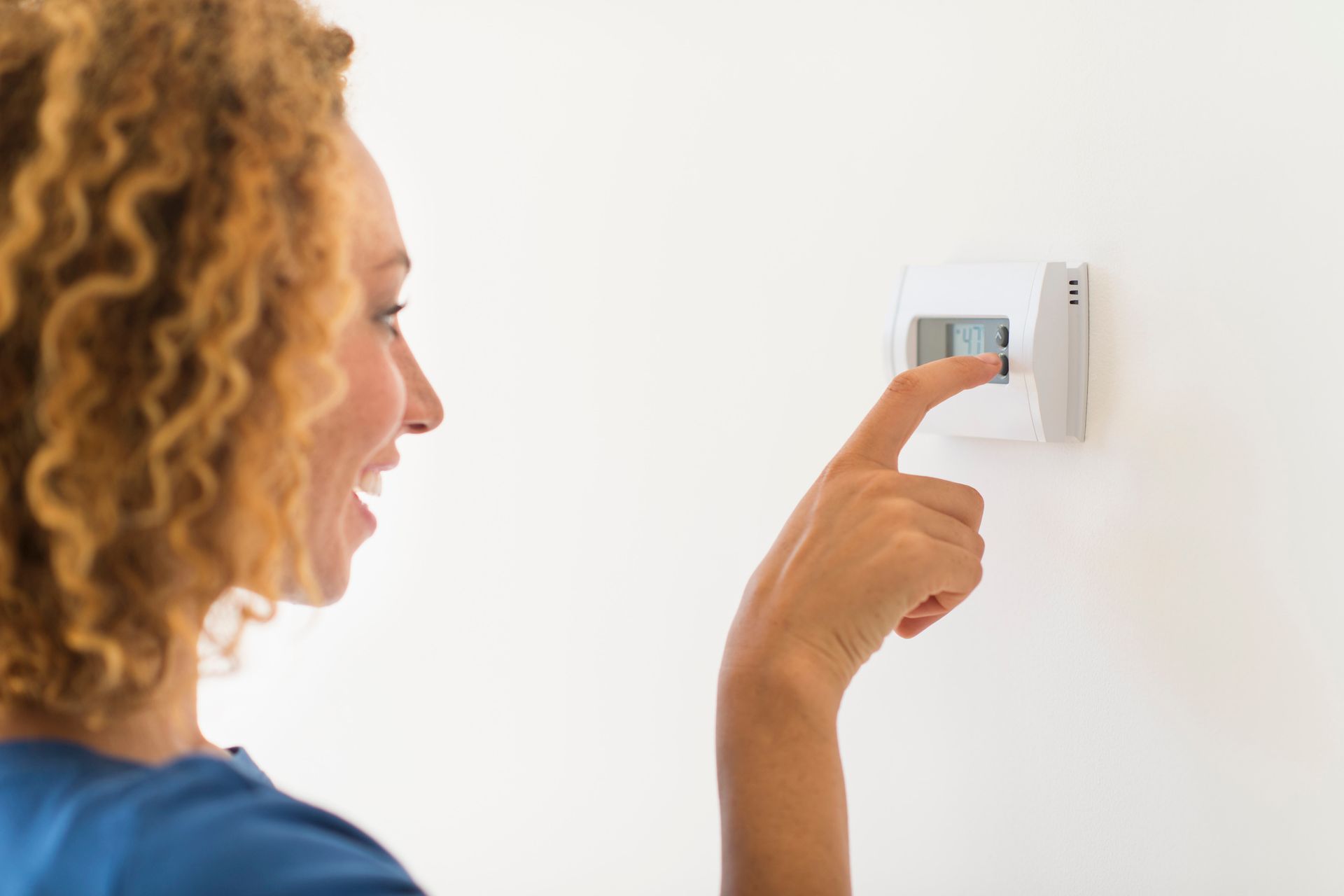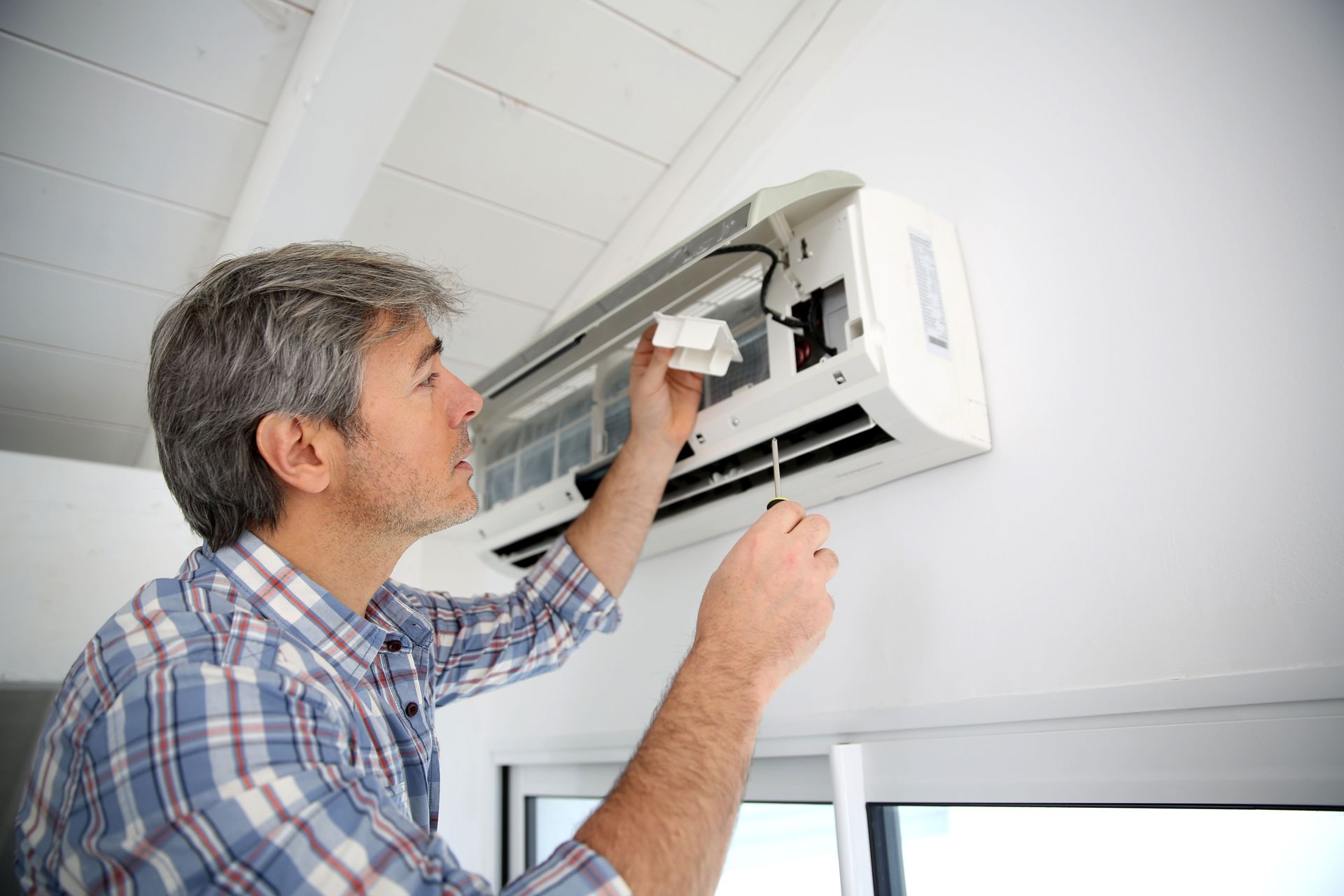July 21, 2025
In this article, we will explore the various reasons why installing an air conditioning system should not be a do-it-yourself project. While DIY projects can be rewarding, air conditioning installation involves specific complexities and risks that require professional knowledge and experience. This guide will detail these complexities and the potential consequences of a DIY installation. Air conditioning systems are highly technical and require precise installation, impacting both the efficiency and longevity of the unit. Consider the potential pitfalls and how a professional installation could help avoid these issues altogether.
Understanding System Components
Modern air conditioning systems consist of several intricate components, including compressors, condensers, and evaporators, each playing a crucial role in the system's functionality. These components work together to cool the air, remove humidity, and circulate it throughout your home. Understanding the interactions and dependencies between these parts is essential for a successful installation. Misalignment or incorrect assembly can lead to inefficient cooling and increased wear and tear on your unit. According to HomeGuide, a well-maintained air conditioner usually lasts between 12 and 15 years, but poor installation can drastically reduce this lifespan.
Importance of Sizing and Load Calculation
Proper sizing and load calculation are critical for ensuring that your air conditioning unit operates efficiently. If a unit is too large, it will cycle on and off frequently, wasting energy and placing unnecessary strain on the system. Conversely, a unit that is too small will struggle to cool your home, resulting in higher energy bills and increased wear. A professional can accurately calculate the cooling load required based on the size, insulation, and layout of your home. This precision ensures that the system runs smoothly and efficiently over the years, maintaining both comfort and cost-effectiveness.
Integration with Home Ductwork
Connecting a new air conditioning unit to existing ductwork poses unique challenges that require skilled intervention. Misalignments or incorrect connections can lead to air leaks, reducing system efficiency and increasing energy bills. Professionals have the expertise to assess the condition of ductwork and make necessary adjustments for optimal integration. In some cases, ductwork may need repair or replacement to accommodate a new system adequately. Avoiding these potential issues without professional guidance can lead to decreased comfort and increased costs over time.
Advanced Control Systems
Modern air conditioning units often come equipped with advanced control systems that require specialized knowledge for proper installation. These systems can include smart thermostats, remote monitoring, and integration with home automation systems. Ensuring seamless operation with these technologies demands expertise that goes beyond basic electrical knowledge. DIY installations may fail to configure these systems correctly, leading to operational inefficiencies and reduced user satisfaction. Professionals are trained to handle these advanced systems, ensuring that you can fully utilize their benefits.
Energy Efficiency Considerations
The installation process significantly impacts the energy efficiency of an air conditioning system. Improper installation could lead to airflow issues or improper refrigerant charge, both of which can reduce efficiency. Professionals have the know-how and tools to ensure all components are correctly installed and calibrated for maximum efficiency. This ensures lower energy bills and reduces the system's environmental impact. An efficient air conditioner not only saves money but also prolongs the lifespan of the unit, ensuring durable and reliable performance over time.
Electrical Risks
Handling the electrical components of an air conditioning system presents significant risks for those without proper training. Incorrect wiring or connections can lead to electrical fires or malfunctions in the system. Professional installers have the skills and experience to manage these risks effectively. They ensure that all electrical connections are safe, secure, and compliant with local regulations. By attempting to perform these tasks yourself, you may inadvertently create hazardous conditions in your home.
Handling of Refrigerants
Refrigerants, the lifeblood of air conditioning systems, require careful handling due to their potential environmental and health impacts. Leaks or incorrect handling of refrigerants can result in serious safety risks, including respiratory issues and environmental damage. Professionals are certified to handle these materials safely, reducing the risk of exposure or contamination. They ensure that refrigerant levels are perfectly balanced for efficient operation. By allowing a professional to manage these potentially hazardous substances, you safeguard your home and the environment.
Installation Accidents
Air conditioning installation is a physically demanding task that poses several risks to those undertaking it. Lifting heavy components, using power tools, and working in confined spaces can lead to physical injuries. Professionals are trained to navigate these risks, employing techniques and tools that mitigate the likelihood of accidents. By contrast, inexperienced individuals may not recognize potential hazards, leading to increased risks of harm. Choosing professional installation helps ensure safety throughout the process, preventing accidents and injuries.
Structural Challenges
Installing an air conditioning unit often involves working on roofs, walls, and other structural parts of your home. This work can pose risks both to the structure itself and to those performing the installation. Without proper precautions, there's a high chance of causing damage to the building or even personal injury. Professionals have experience in managing these challenges, ensuring installations are performed without compromising structural integrity. Their expertise allows for a smooth installation process, preserving your home's value and safety.
Fire Hazards
Improper installation of an air conditioning system can contribute to fire hazards within your home. Wiring issues, faulty circuits, or refrigerant leaks can all increase the risk of a fire outbreak. Professionals are trained to identify and eliminate these hazards, ensuring that the installation is safe and compliant with safety standards. By doing so, they significantly reduce the potential for fire-related incidents. A professional installation not only safeguards your property but also provides peace of mind.
Licensing and Certification
Installing an air conditioning system legally requires specific licensing and certifications, which a DIY enthusiast may lack. These credentials ensure that the installer is knowledgeable about the necessary codes and safety measures. Engaging a professional ensures that the installation is compliant with all local, state, and federal regulations. A certified installer provides not only peace of mind but also a guarantee that the work performed is up to standard. DIY installations, on the other hand, risk non-compliance and potential legal issues.
Building Codes and Permits
Adherence to building codes and securing necessary permits is a critical component of air conditioning installation. These regulations exist to ensure safety, efficiency, and environmental responsibility. Failure to obtain the required permits can result in fines or the required removal of the installed unit. Professionals understand the administrative aspects involved and are proficient in navigating such requirements. Choosing professional installation avoids bureaucratic pitfalls, ensuring a smooth, compliant process.
Warranty Conditions
Many manufacturers stipulate that professional installation is a condition for maintaining product warranties. A DIY approach could void the warranty, leaving you without protection for future repairs or replacements. Professionals provide documentation and assurance that the installation meets warranty conditions. This not only secures your investment but also provides access to warranty benefits over the lifespan of the system. Protecting your warranty is an essential consideration in deciding between DIY and professional installation.
In conclusion, while the allure of a DIY project may be strong, the complexities, risks, and potential financial and safety implications make professional air conditioning installation a wiser choice. By hiring experts, you ensure that your system operates safely and efficiently, saving you time, money, and future headaches. Their expertise, combined with the tools and knowledge required to handle modern, complex systems, guarantees installation success and system longevity. Ultimately, professional installation safeguards your home, mitigates risks, and maximizes comfort. Prioritizing professional installation is a prudent decision that yields long-term benefits. Be sure to reach out to Four Seasons Air Systems today for more information on our professional air conditioning installation !
